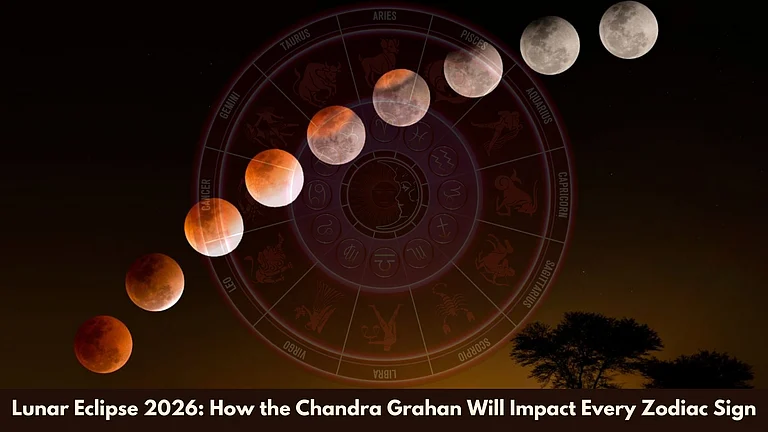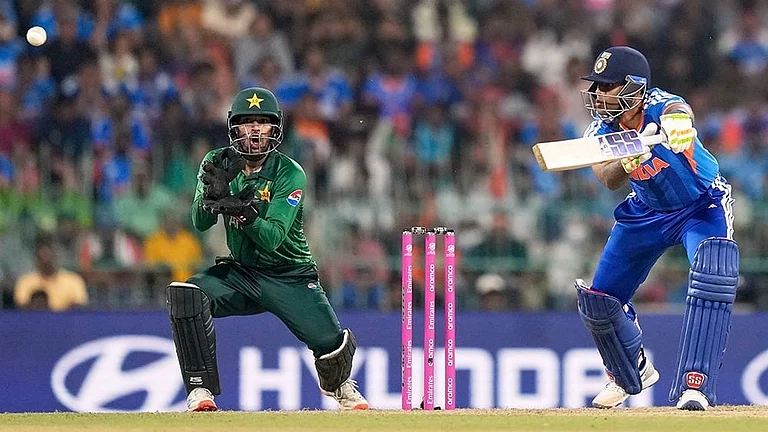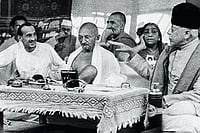There is no running argument in the book—it is a collection of essays produced in the last five years for the media. The author, who is a leftwing enthusiast, harps on the effect of communalism on the Indian polity. Several intellectuals have emerged as critics of one kind of secularism or another as well as of 'secular' India. Both are placed in the dock by Vanaik and blamed for the "rise of communalism and fundamentalism".
The author claims he has provided theoretical advances and new insights on the ideology of secularism (arguing for a separation of the political and the religious). Yet, his obsession persists: "The long-term battle to defeat communalism and fundamentalism will be waged on the terrain of civil society where the democratic process must be stabilised and secularisation deepened."
The study of religion is now well set in the West, although this is not the case in India, particularly not on Hinduism. The larger compass that could provide a sociology of Hinduism has been elusive in most studies of modern India. The compendium does not make up for this. The author discusses Hinduism, Hindu nationalism and Hindu 'communalism', but makes only marginal references to minority communalism or Islamic India.
Vanaik says: "Apart from an unnecessary defensive attempt to establish appropriate liberal credentials by 'balancing' my preoccupation with majority communalism and minority communalism, I doubt much would be gained by a study of this type."
The issue of minority communalism becomes more obviously relevant in studies where the focus lies elsewhere. The author states such an attempt is outside the purview of the book and beyond his competence. 'Progressive' writers with a secular view of history often practice selective witchcraft while exorcising communalism from Indian polity. Vanaik seems no exception.
He argues for a decline in religious influence and in the significance of religious identity. The revelation is as old as Marxism. To expect Marxist writers to differentiate between dharma and religion would be too much of a strain on their intellect.
It is one thing to insist that India and societies outside the industrialised world have been "condemned to modernity" and to insist on finding modernist solutions to contemporary problems. It is another to ignore the ugliness that accompanies this modernity. The capitalist character becomes a crucial source for explaining its evils, and understanding it helps explore ways to overcome them.
He mentions four fundamental processes that mark the ground on which political battles will be waged: 'commu-nalisation' of Indian polity, for which political Hindutva bears great responsibility; a new Muslim ferment (opposing fundamentalists and clerical leadership); the forward march of backwards; the new Dalit assertion.
His thesis: India is one of the few nations where mass communist parties exist and a far Left presence is relatively not significant. Having paid this left-handed compliment to the Commies, the author, worried over the advance of the BJP, expects the gerontocrat Congress to combat communalism. A more sober assessment of Congress capacities would have been in order. The section ends with hopes for progress pinned on a new social democracy.
Achin Vanaik, a freelance journalist, has got his bearings wrong. He admits Gramsci's (Marxist tradition) and Raymond Williams' influence on him. He has a bias against Hinduism. What he paints as communalism is just fierce patriotism. He mixes up Hindutva (the cultural ethos) with communality and needs to brush up his facts before his prejudiced pen brands the majority community communal.
























